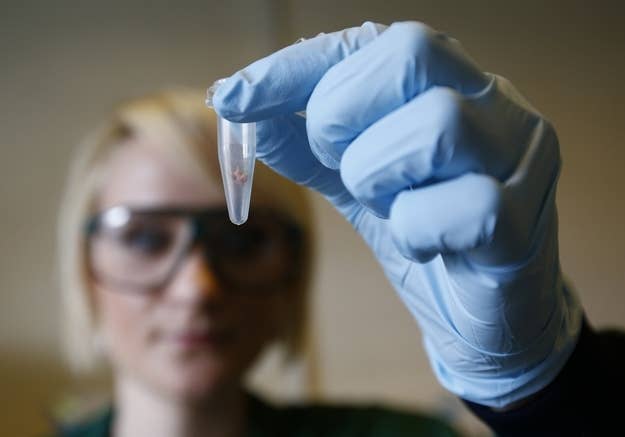
Part of your DNA may be owned by a biotechnology firm in Utah.
This spring, the Supreme Court will hear a dispute as to whether human genes can be patented. This case, Association for Molecular Pathology v. Myriad Genetics, Inc., will have enormous consequences for biotechnology, medicine, and bioethics.
Genes are the part of DNA that direct the building and work of the body. While we all have genes, they vary from person to person, and some genes mutate in bad ways. Today, medical researchers invest substantial energy and capital to study these genes and develop therapies that might one day remedy bad mutations.
The Utah biotech firm Myriad Genetics is one such company. Myriad developed novel ways to isolate and extract the genes BRCA1 and BRCA2 from an individual's body. BRCA1 and BRCA2 are genes that are linked to increases in a woman's risk of breast and ovarian cancer. But Myriad did not just patent its techniques for isolating BRCA1 and BRCA2. It also secured patents for the genes themselves. As a result, Myriad's patents grant them a monopoly on the use of those genes for cancer research, diagnosis, and treatment. (Here are the patents: BRCA1 and BRCA 2.)
Under the law, you cannot patent "natural phenomena," "laws of nature," or "products of nature." So don't try to patent light, gravity, or monkey arms. But you can patent "new and useful" "compositions of matter" that are "products of human ingenuity," such as a manmade bacteria that eats crude oil spills. To paraphrase Ginuwine, the question is whether there is any room for scientists in those genes. (I had to try.) Are BRCA1 and BRCA2 truly the genes themselves, or do they have "markedly different characteristics from any found in nature"?
Myriad's best legal hope is to get into the scientific weeds — the company has argued that BRCA1 and BRCA2 do not occur in nature without their human intervention, and that they have new and significant uses that could not exist without human ingenuity. The specialized federal patent court has twice accepted Myriad's arguments. And Myriad certainly deserves a proper reward for its research and innovation.
But the Supreme Court should rule against Myriad and draw a line in the sand. The Constitution requires patents to "promote the Progress of Science." Myriad's patents forestall that progress. They are exceptionally broad, covering every isolated form and mutation of those genes — including those not yet discovered. They also cover every use of those genes — including cancer research, drug development, diagnosis, and treatment. With a patent monopoly, Myriad can block research, set its own (high) price on diagnostic testing, and create ethical hurdles for other doctors and researchers who may uncover information related to a woman's health and BRCA1 and BRCA2.
The human genome should not be carved up into research fiefdoms policed by the patent office.
An advocate for the Digital Age, Michael Phillips is an associate at a Wall Street litigation boutique (though he is not your attorney and this piece does not constitute legal advice for you!). He has been called a "thick-haired man" by the New York Times.
